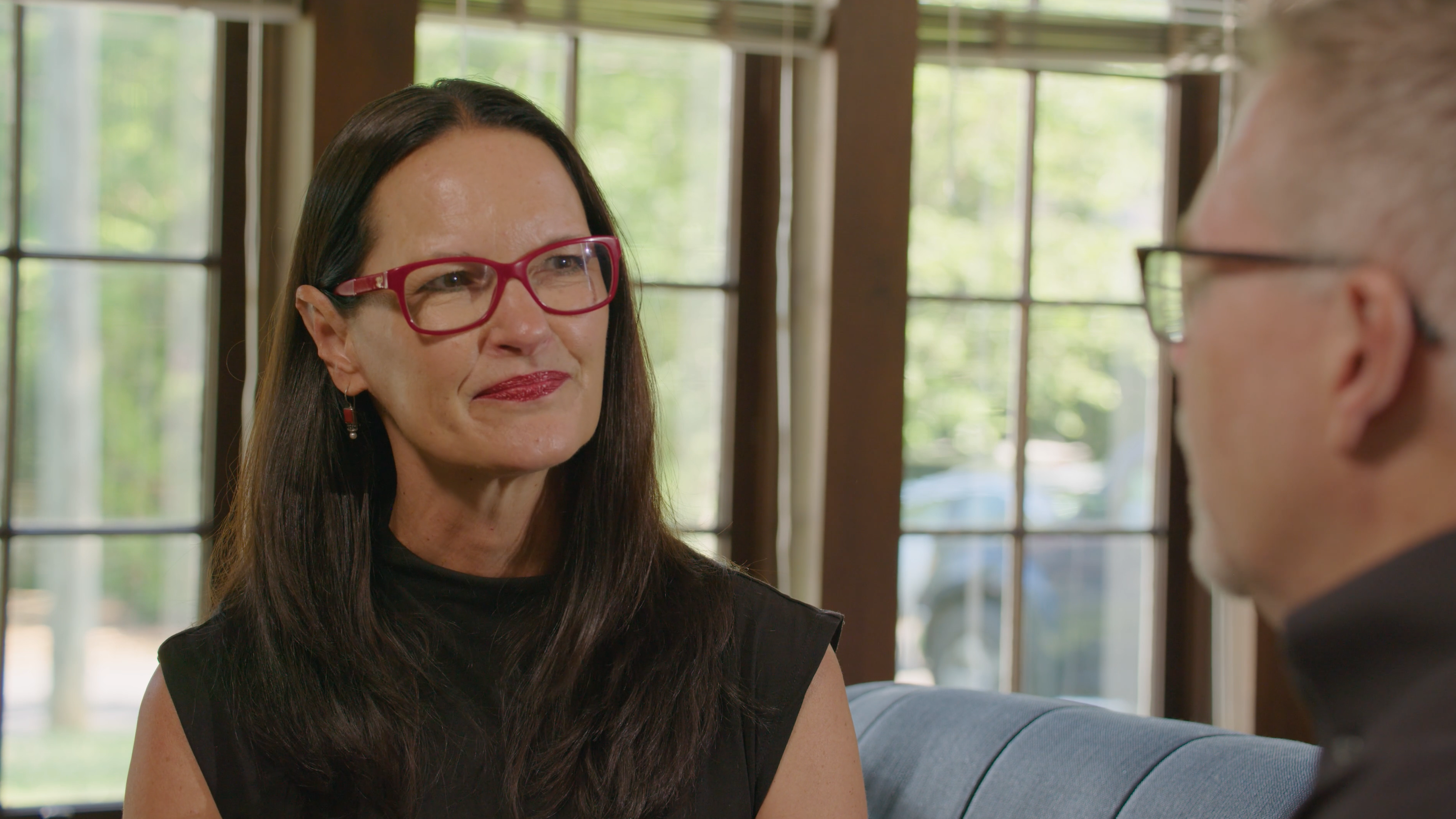Question of the Month: What does it really mean when a donor says “no” to your request for a gift?
Some people may think that a fundraiser’s job is to get donors to say “yes.” But that’s not accurate. As fundraisers, our job is not to pressure...

What donors want is rather simple. In truth, it boils down to our own core wants. If you can meet these wants, you’ll be surprised to see how much more impactful your donor relationships will become.
In my experience, I’ve found that there are four things that all donors want:
I had an experience which reminded me what it feels like to be with someone and be invisible. I am sure you have had a similar experience. You’re sitting across from another human being and the entire field of energy and conversation is all about them. It is a constant barrage of “me and I” statements that force you to muster up every bit of strength to stay polite and keep listening.
I went away from that encounter with a little bit of self doubt. Was I really that boring? Is there nothing of value about me that would be of interest to that person?
And then I caught myself. This was not about me. It was about the other person – it was entirely about the other person and their self-absorption.
Here’s the point. No one likes to be invisible. And that includes your caseload donor. Your donor wants to be known. I’m not talking here about knowing every private little detail of their lives. No. Your donor wants to know that you know what they care about – what they want to invest in.
“I went to the mailbox the other day. What a letdown. It could have been a check for one hundred dollars. It could have been a letter from my sister or my daughter – an invitation to a party – a note from a friend – an announcement of someone’s newest arrival – or even my favorite magazine.
But it was nothing personal – just junk advertisements mailed to “Occupant” – utterly useless words with gilded promises of: a rich windfall of sweepstakes prizes, a way to borrow $10,000, a new community being developed, a new credit card offer, or a promise of total security with a new insurance package.
The computer letters clicked “Dear Friend.” One oozed “My dear Mr. Perry.” No one wrote “Dear Richard.”
I needed a personal touch that day. I ached to know that someone remembered. That someone lifted a pen, took some time, sealed an envelope and put a live stamp on it….for ME, at MY house, in MY town. But the only mail I got wanted my money, my vote, my action.”
I came across this story many years ago. I don’t know who wrote it and I’ve tried to find out. But it perfectly describes the feeling a person gets when the relationship is one-sided – when all the other party wants is something from us.
I hope not. But take inventory right now and ask yourself the following questions:
If you answered “yes” to all of these questions, then you are not treating your donor as partner, one of the very important things every donor values. And partnership means different things to different donors. Some donors want full involvement. Others simply want to know that they are sitting at the table making a difference.
Take time to think through your approach to your donor relationships right now.
Here’s a quick story to show what I mean here:
These donors, a very wealthy couple, had been giving to the organization for over 10 years. They loved the organization. They had introduced the CEO of the organization to many of their wealthy friends. And things were going very well for everyone.
Until the cover-up began.
It started several years earlier when the donors were presented with an opportunity to fund a program they were passionate about. The CEO explained all the details on what the objectives of the program were, how it would work, the sequencing of activity, etc. The couple was excited and made a multi-million dollar commitment over a period of three years.
And everyone was happy. Until the program implementation ran into some problems and needed to be changed.
Let me digress a bit here.
You know as well as I that anytime you plan to do something, even a trip across the state, you create a plan and then as things unfold, and circumstances present themselves you have to change that plan. That’s life. Most plans I have been involved with have had to change. I always tell others, about any plan I am involved with, that the plan is likely 60% right – that the other 40% will need to change as we go along. I do that because I know from experience that this is how it goes.
So do most people. And all anyone requires is a heads-up to reset expectations.
And this is where it went wrong in the story I am telling about the wealthy couple and their generous support of a program with their favorite charity. When the CEO heard that things were not going well and that changes were needed to the program design, he immediately got into a defensive position with the donors and concluded that they would be angry with the change in direction. So he decided not to tell them.
All because the CEO lacked the courage to tell the donor what was going on in a timely manner – he did not tell the donor the truth.
Jeff and I see some version of this story very frequently. And it comes in many forms, ranging from outright lying and deception, to the just as tragic and hurtful situation where the non-profit simply does not tell the donor how their gift made a difference.
The lying is one thing – it’s a character flaw on the part of those that are doing it. But not regularly telling the donor how their gift is being used is inexcusable and incredibly damaging to donor relationships. It’s one of the major reasons more and more donors are getting discouraged and disenchanted with the whole giving thing. Can they trust that they will really know if their giving made any difference? Can they know that their giving was used to do any good, or was it just gobbled up to fund the desires and dreams of the insiders?
This telling the truth thing is a big deal with donors. Huge. And if you’re wondering why your donor is a little tentative in his or her relationship with you, it may be because they’re dealing with trust issues with you and/or your organization.
So, make sure you are telling each of your donors the truth, in large ways and small, to build trust in your donor relationships.
When Bank of America surveyed their high-net-worth clients about what was important to them, the answer that came back was not surprising to Jeff and me. It boils down to two big areas:

Look at the details in the graphic above that comes from that same study. It’s a no-brainer that health, family, and financial security are the essential elements of a life well lived. But look at the important points and the theme that runs through them:
We all do. Your donor wants to make a difference.
That’s why it’s so important to give immediate and thorough feedback on donor giving – every time they give a gift and even when they don’t. It’s so interesting to me that the many thanking systems Jeff and I see in the non-profit world are tied to and reacting to a gift. The donor gives a gift, and that’s the magic button that starts the thank-you engine internally.
This is so terribly wrong, especially in major gifts.
So, take a look at how the thanking process is happening and how it impacts donor relationships in your organization. And talk back to me if it’s anything more than (1) the gift arrives and (2) the “thank you” goes out. Sure, you’ll throw a newsletter in there or something like that. But do this. Take ONE donor on your caseload and become them. Then sit back and receive what you are planning to send them. Sit in your chair and receive that communication. Think about the timing. Evaluate the content. Examine how you FEEL about it.
Is it satisfying? Does it meet your need to make a difference? Is it right on as relates your passions and interests? Does it really communicate that making a difference is important? Or is it just transactional? I would really like for you to feel what your donor feels when they receive your communications.
Try it. You’ll learn a lot about the gaps in your donor relationships and the focus of your messaging.
Keep evaluating your systems and processes with the donor’s values and core needs in mind. Are you honoring these core needs in your donor relationships?
Remember, your donors are just like you. They want to make a difference. How are you helping them do that?
Richard

Some people may think that a fundraiser’s job is to get donors to say “yes.” But that’s not accurate. As fundraisers, our job is not to pressure...

Your hands ache from writing “We couldn’t do this work without you,” on hundreds of cards. The papercuts on your fingertips sting as you shovel...

One of the best things we can do for ourselves is look at how someone else is doing their work and explore how to apply it to what we do in...